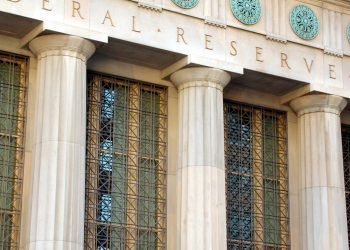RISMEDIA, March 6, 2008-(MCT)-With the economy in a nosedive, Americans are shedding unnecessary expenses, saving their cash and voting “no” to discretionary spending.
That means later for lattes, farewell to fashion and goodbye to family vacations at Disney World.
The new restraint reflects a time-tested truth about economic downturns: When the economy gets shaky, non-essential spending is the first thing to go.
From Starbucks to Disney World and Nordstrom to Target, the service sector-which accounts for about two-thirds of the nation’s economic activity-is taking the hardest hit.
A monthly survey of 15,000 consumers released recently by Discover Financial Services found that half planned to do less non-essential spending in February and also plan to spend less on household improvements, major purchases and savings.
Even people who earn more than $75,000 a year are feeling the pinch. Among these consumers, the survey, which was conducted in January, found that only 9% planned to spend more on non-essential items such as entertainment and travel, down from 14% the previous month.
“Over the last four months, we have seen a steady increase in the number of consumers who are not only moderating their spending, but intending to spend less to compensate for household expense pressures,” said Margo Georgiadis, executive vice president and chief marketing officer for Discover Financial Services.
Retail, entertainment, tourism and other service industries are girding for an even greater slowdown, and new reports released show that’s a solid bet.
Sales at chain stores that have been open at least a year-known as same-store sales-posted the weakest January increases since the monthly data began being tabulated in 1970, according to a survey of 43 retailers by the International Council of Shopping Centers.
Companies such as Target, J.C. Penney, Nordstrom and Macy’s suffered declines in same-store sales last month, with Macy’s announcing plans to cut 2,300 management jobs.
“The industry is struggling with near- or recession-type conditions, and their performance certainly reflects that,” said Michael Niemira, the council’s chief economist. “There’s greater uncertainty out there for consumers and it is showing up as less discretionary spending.”
Starbucks is a prime example. The java juggernaut plans to close nearly 100 low-performing U.S. stores in fiscal year 2008.
“We have already slowed the pace of store growth in the U.S. to approximately 1,175 stores for this fiscal year, down from a revised target of 1,600 stores,” Starbucks Chairman Howard Schultz said.
Even Wal-Mart, which showed modest gains in same-store sales in January, reported that consumers are changing their spending patterns.
“Gift-card redemptions were below expectations, and customers appear to be holding gift cards longer and using them more often for food and consumables rather than discretionary purchases,” Wal-Mart said.
Analyst Jason B. Bazinet of Citi Investment Research recently downgraded Walt Disney Co.’s stocks from “hold” to “sell” after citing evidence of reduced room rates at Disney resorts and a softening in reservations.
Bazinet said the discounts and soft reservations pointed to a slowdown in Disney’s theme-park business this year. The company disputes the findings, however.
Add in the foreclosure crisis, credit crunch, high gasoline prices and a possible recession, and it’s easy to understand why people are pinching their pennies.
Families forced out of their homes by foreclosure are even abandoning their pets at shelters because they can’t afford them or no longer have the space.
“We’re certainly hearing from shelters that they’re receiving more animals because of this problem,” said Stephanie Shain, director of outreach for companion animals at the Humane Society of the United States.
Some simply leave pets to die in vacant homes once they move out, Shain said. “A lot of times, no one discovers the animal until it’s either dead or in a serious state of neglect and has to be euthanized,” she added.
The cutbacks come amid a flurry of economic distress signals in recent weeks.
Consumer spending rose by only 0.2% in December and was flat when inflation was factored in. The service sector contracted in January for the first time in about five years, and employers trimmed 17,000 jobs last month, the first such decline in more than four years.
Those signs could mean more stores closing and fewer expanding.
“With prospects for the economy looking weak, particularly in the first half of 2008, leasing activity will face headwinds as retailers trim their expansion plans and look more critically at underperforming stores,” said Robert Bach, chief economist at Grubb & Ellis, a commercial real estate services company.
© 2008, McClatchy-Tribune Information Services.










